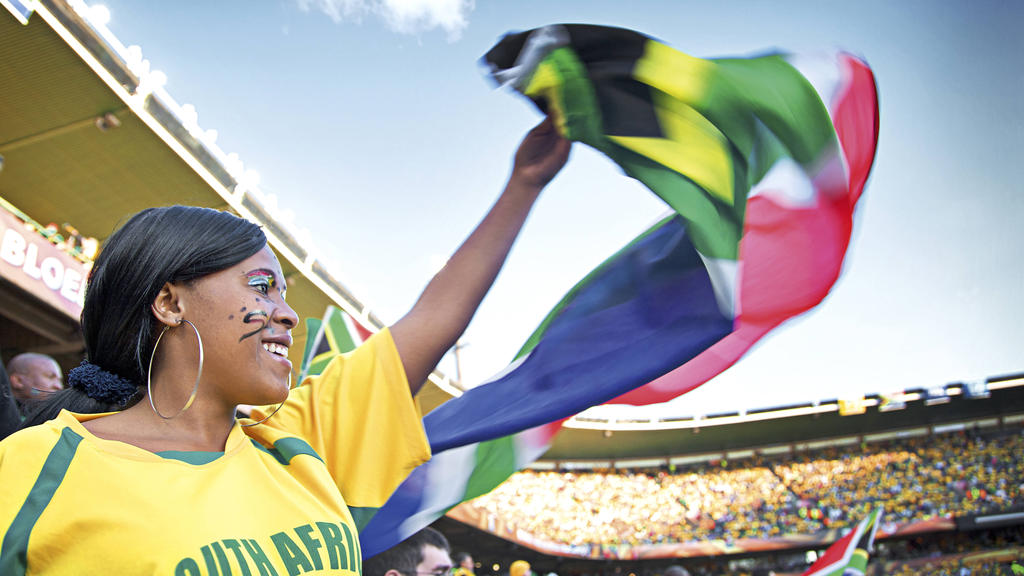Flying bottles, airport redtape, blaring music part of African football DNA

'Dirty tricks' are an unfortunate part of the African football DNA with bottle-hurling spectators, airport redtape and blaring music among methods used to intimidate visiting teams.
The issue came to the fore this week when a Gabon squad including Arsenal star Pierre-Emerick Aubameyang were forced to sleep on the floor at a Gambian airport before an Africa Cup of Nations qualifier.
Gambia say the visitors did not comply with coronavirus-related health regulations while Gabon insist they were treated "inhumanely" to weaken them ahead of a top-of-the-table clash.
Gabon lost the match 2-1 after a howler by goalkeeper Anthony Mfa Mezui gifted Gambia a goal and the teams now share first place with two matchdays remaining.
The Confederation of African Football (CAF) have ordered a probe into an incident which cast the sport in a bad light after Aubameyang tweeted footage of players sleeping on a hard floor.
Here, AFP Sport highlights some of the 'tricks' used by hosts to physically and mentally upset opponents in the belief that it will help them win matches.
What happened to Gabon is commonplace with various tactics used to delay the departure of teams to their accommodation.
For example, if an English-speaking side arrives in a French or Arabic-speaking country without an interpreter, they are easy prey.
Airport officials who understand English suddenly cannot speak one word of the language when problems arise over passports, visas or other documentation.
These issues are often deliberately created with the aim of delaying the visitors indefinitely, causing extreme frustration.
As teams leave the airport terminal expecting to see a modern, air-conditioned coach that will transport them to the hotel, they may get a rude awakening.
Clubs have relayed horror stories of ancient, barely-functioning vehicles with insufficient seating, no air conditioning and windows that do not open, creating an oven-like atmosphere.
As if that is not sufficient 'punishment', the driver may choose a much longer route than necessary, adding to the discomfort of the sweltering delegation.
Then, adding insult to injury, some vehicles break down and it can take hours for alternate transport to arrive and continue the journey.
This is a key 'battleground' for those determined to make life as unpleasant as possible for visiting national teams and clubs.
There have been endless tales of long delays at reception, lifts not working, and rooms full of cockroaches with just a trickle of cold water, or none at all.
Television sets sometimes do not work, nor do landline telephones, and the aim is to make life extremely frustrating, leaving many footballers already thinking of the flight or drive home.
A Zimbabwean side visiting west Africa complained of four adults being allocated to each double bed, female prostitutes banging repeatedly on doors demanding money and blaring music disturbing sleep.
Footballers already fed up after airport delays, inadequate transport and undesirable accommodation, just want to start training.
But 'dirty tricks' operators have more shocks in store, starting with another needlessly long journey in a vehicle with no air conditioning and closed windows.
When they eventually arrive at the training ground -- sometimes a sandy patch with no markings -- the groundsman with the keys to the entrance gate has gone missing.
By the time he arrives, darkness has set in and there are not floodlights so the much-needed training session has to be cancelled.
Coaches rarely talk about crowd intimidation less they be accused of making excuses for their own inadequacies after a loss.
But Pitso Mosimane, the South African recently appointed coach of African and Egyptian giants Al Ahly after turning Pretoria outfit Mamelodi Sundowns into domestic powerhouses, has spoken out.
"When we were playing Entente Setif in Algeria, one of my (Sundowns) players ran next to the touchline and bottles were dropping all around him from the stands.
"It is all about intimidation. Before we played Egyptian club Zamalek in the 2016 CAF Champions League final many of us received death threats via Instagram, Facebook and Twitter."






